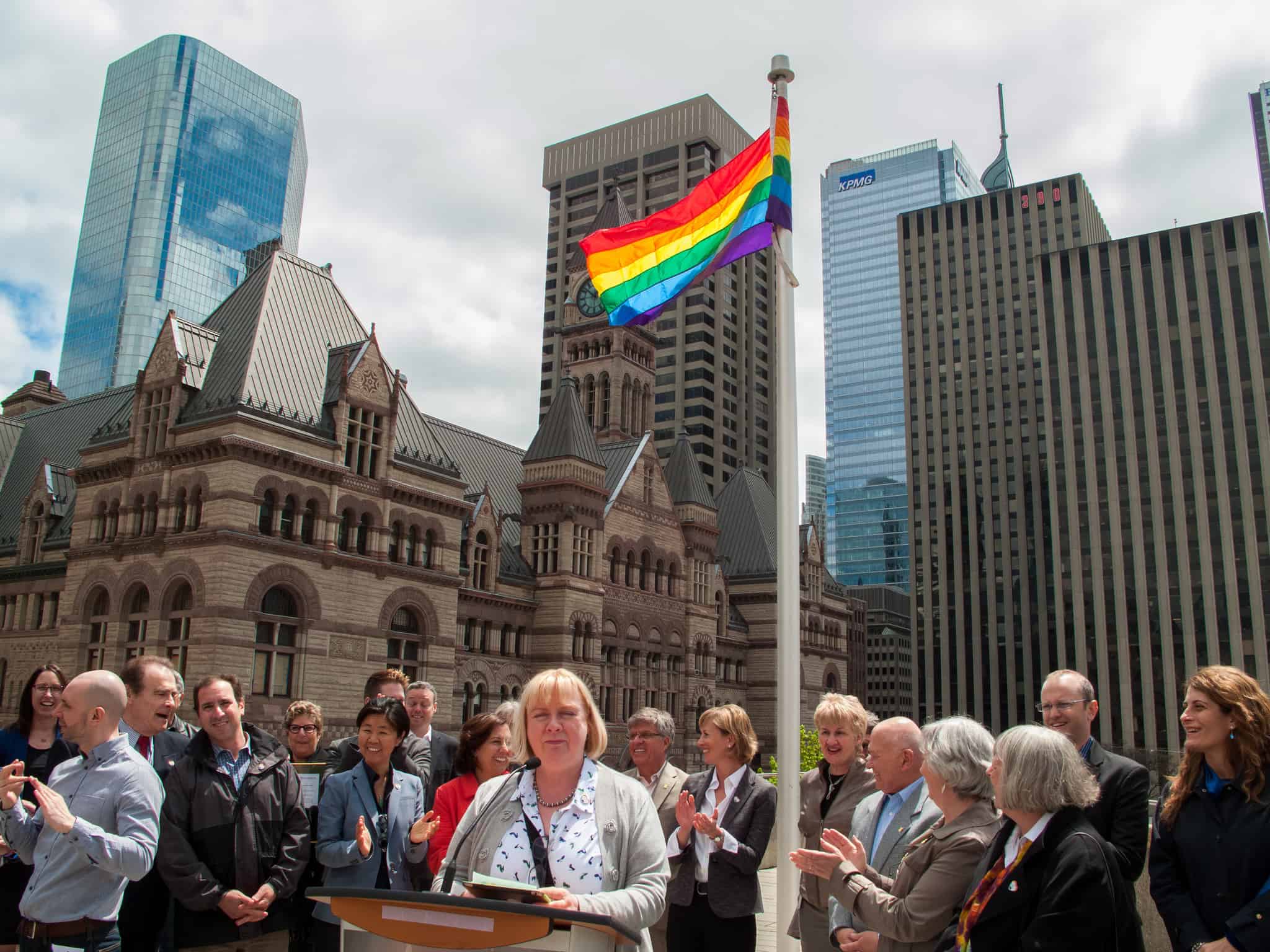Transit, youth unemployment, housing, the arts — no matter which issue you care about, John Clifford, spokesperson for proudTOvote, wants you to vote.
ProudTOvote is a non-partisan community intiative formed earlier this year to mobilize the LGBTQQIP2SAA (lesbian, gay, bisexual, transgendered, queer, questioning, intersex, pansexual, two spirited, asexual, allies) and Ally vote in the upcoming mayoral election.
“There are issues that are relevant to anyone in the city… transit, good government, affordable housing for lower-income families,” said Clifford.
“There are also issues that are discretely issues of the LGBTQ community, but are still relevant to others,” he added.
Clifford cited the vibrancy of the Church-Wellesley neighbourhood, and support for Toronto’s Pride Parade as important issues for all Torontonians.
Since it’s founding, proudTOvote has gathered policy information relevant to the LGBTQ community, interviewed candidates on LGBTQ issues, and hosted a mayoral debate focused on LGBTQ issues.
“Our focus was to get out and have the community vote for a mayor who was proud of us,” Clifford said.
During the debate, the group asked mayoral candidates whether they supported an investigation into the need for an LGBTQ homeless shelter in Toronto.
Both candidates at the debate, Olivia Chow and John Tory, supported an investigation.
The group is also working to inform Toronto residents about the logistics of voting.
“It’s pretty straightforward about who can vote. You just need to be a Canadian citizen, over 18 years old, and a [Toronto] resident,” Clifford said.
Students who live in residence are considered Toronto residents for the purpose of the election, even if they call another city home.
The City of Toronto also maintains a list of identifications that are considered acceptable to establish residency.
The list includes a credit card statement, a utility bill, or a university transcript.
In the past, college registrars have sent out proof of residency documents to students living in university residence.
The City of Toronto also maintains a website that allows voters to find their polling station.
Although the group works to inform the electorate about LGBTQ issues, it is not endorsing a particular candidate. “We just want to get information out there… and help [voters] to make informed choices,” Clifford said.
The group has not discussed plans to continue its advocacy work beyond the election, but has not ruled out the possibility,
“I could see a definite role for proudTOvote to reinvent itself for different elections and different jurisdictions,” Clifford said.
Clifford cited Proud Politics, a Canadian organization working to increasing the number of openly LGBTQ public officials in Canadian politics, as a separate group that works on LGBTQ issues year-round.


